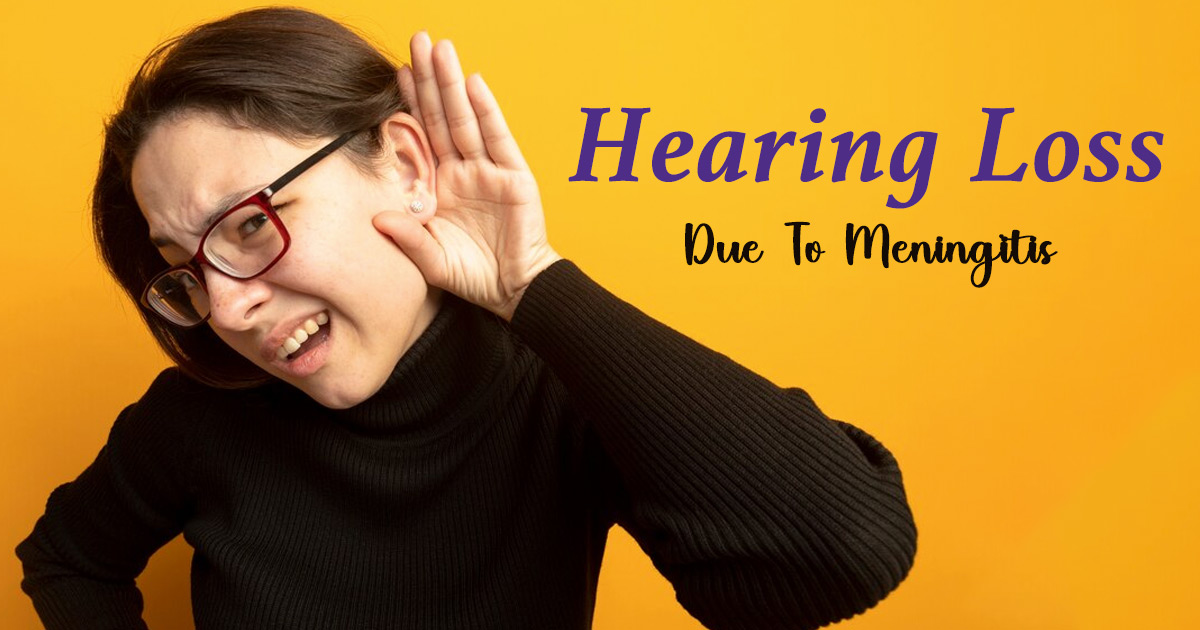Meningitis & Hearing Loss – Why It Happens & How to Treat

Recovering from meningitis is a major milestone, but the effects of the infection can linger long after treatment. While the disease primarily targets the brain and spinal cord, it can also lead to lasting complications, including hearing loss. This condition can vary from subtle difficulties in hearing to complete deafness, significantly affecting daily life. Learning how meningitis triggers hearing loss, identifying early warning signs, and exploring available treatments can make a difference in restoring and preserving hearing abilities.
Understanding the Link Between Meningitis and Hearing Loss
Meningitis is a severe infection that causes inflammation in the meninges, the protective layers encasing the brain and spinal cord. While it can stem from viruses, fungi, parasites, or bacteria, bacterial meningitis carries the greatest risk of leading to hearing loss.
When the infection reaches the inner ear, it disrupts the delicate hair cells in the cochlea and impacts the auditory nerve. Bacterial toxins trigger intense inflammation, often causing irreversible damage within days. Research suggests that nearly 30% of bacterial meningitis cases lead to some level of hearing loss.
Symptoms of Meningitis That May Lead to Hearing Loss
Recognizing meningitis symptoms early can prevent complications like hearing damage. Symptoms in adults include:
- Stiff neck
- Sensitivity to light
- Confusion or difficulty concentrating
- High fever
- Severe headaches
- Nausea and vomiting
Infants may exhibit different signs, such as irritability, trouble waking up, a bulging soft spot on the head, and feeding difficulties. Getting medical help as soon as symptoms arise is essential for preventing serious complications.
Treatment for Hearing Loss Due to Meningitis
Hearing Tests After Meningitis Recovery
Even if hearing issues are not immediately noticeable, individuals recovering from meningitis should have their hearing tested within four to six weeks of discharge. Hearing damage isn’t always immediately noticeable, but early detection improves the chances of effective treatment.
Free hearing tests are available at many clinics for adults over 26. The process is simple and takes about 15 minutes. If initial tests detect hearing loss, a more detailed evaluation with an audiologist may be needed.
Hearing Aids and Other Assistive Devices
For those experiencing hearing loss from meningitis, hearing aids can provide significant improvement in communication and quality of life. Hearing aids enhance sound clarity by boosting important frequencies while reducing background noise, making conversations easier to follow.
Different hearing aid styles are available, including discreet models that sit inside the ear or rest subtly behind it. Some models even connect wirelessly to smartphones for added convenience.
In cases where hearing aids are insufficient, cochlear implants may be recommended. These devices work by bypassing damaged cochlear hair cells, transmitting sound signals directly to the auditory nerve.
Medical Treatments and Preventive Measures
While hearing loss caused by meningitis is often permanent, certain treatments can help minimize damage:
- Steroids – These may be administered during meningitis treatment to reduce inflammation and lower the risk of hearing impairment.
- Direct Inner Ear Injections – In some cases, steroids are injected into the inner ear to protect against hearing loss.
- Antibiotic Selection – Some antibiotics used to treat bacterial meningitis can cause hearing damage. Discussing medication options with a doctor can help minimize risks.
Vaccination is another key preventive measure. Meningitis vaccines can protect against bacterial strains that commonly cause the infection. Maintaining good hygiene and avoiding sharing personal items can also help reduce the risk of contracting meningitis.
Living with Meningitis-Related Hearing Loss
Adjusting to hearing loss can be challenging, but support is available. Many hearing aid providers offer counseling and resources to help individuals navigate their new reality.
Technology has also made it easier to adapt. Modern hearing aids allow people to enjoy social gatherings, listen to music, and engage in conversations more comfortably. Those affected by hearing loss can still experience everyday moments with clarity, whether it’s hearing the sounds of nature or chatting with loved ones.
Regain Control Over Your Hearing
Meningitis can cause lasting complications, but hearing loss doesn’t have to define life after recovery. Testing for hearing loss early, exploring treatment options, and using assistive devices can help individuals regain independence and communication.
If you or someone you know has experienced meningitis-related hearing loss, schedule a hearing test as soon as possible. The sooner issues are identified, the sooner effective solutions can be implemented and the condition addressed.
